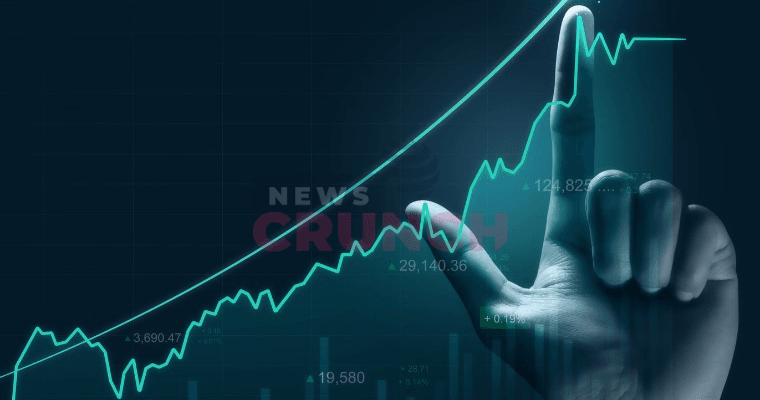
1. Introduction: Understanding Speculator
Speculator, often misconstrued in finance, is a pivotal force in global markets. At its core, speculation involves buying or selling assets—such as stocks, currencies, commodities, or derivatives—expecting to profit from price changes. Unlike long-term investors who prioritize fundamentals and steady growth, speculators focus on short-term opportunities. They aim to anticipate market movements and capitalize on them before prices adjust.
While the activities of speculators may appear risky or even reckless to the casual observer, they bring significant value to the market. By actively engaging in buying and selling, speculators ensure that markets remain dynamic and responsive. Their decisions are often driven by careful analysis, including technical charts, market trends, and economic indicators, rather than random guesses. This increases market liquidity and assists in price discovery.
Speculation is not limited only to financial assets. It includes oil, gold, agricultural products, forex markets, and derivatives. These markets rely on speculators to balance supply and demand, ensuring that prices reflect real-time conditions. For individuals and institutions interested in trading, understanding speculation is vital.
In essence, speculation represents both risk and opportunity. Those who approach it strategically, with knowledge and discipline, can potentially achieve significant financial gains. Understanding how speculators operate, the risks involved, and the broader market impact is a key first step for anyone looking to engage with or analyze modern financial markets.
2. Definition of a Speculator
A speculator is an individual or entity that trades financial assets to profit from short-term price fluctuations rather than holding investments for long-term growth. Unlike traditional investors, who prioritize fundamentals such as company earnings, dividends, or growth potential, speculators rely on market timing, trends, and patterns to identify opportunities. Their activities span various markets, including stocks, bonds, currencies, commodities, and derivatives.
The essence of speculation lies in taking calculated risks. Speculators attempt to forecast how prices will move and enter trades accordingly. They are often more flexible and reactive than long-term investors, adapting quickly to changing market conditions. This flexibility allows them to capitalize on volatility, which might otherwise be seen as a threat. By doing so, they contribute to the overall efficiency of financial markets, helping with price discovery and liquidity.
Speculators are not gambling unthinkingly. Successful speculation involves research, strategy, and disciplined execution. Techniques may include technical analysis, monitoring market indicators, or leveraging positions to maximize returns. Risk management is equally important, as high rewards often come with high exposure to loss.
Overall, speculators play a critical role in financial markets. Their presence ensures active trading, enhances liquidity, and enables the market to adjust to supply and demand dynamics. Understanding the role and behavior of speculators is essential for anyone aiming to participate in or analyze modern financial systems.
3. Speculator vs. Investor: Key Differences
While participating in financial markets, investors and speculators have significantly different objectives, strategies, and risk tolerance. Investors typically focus on long-term wealth accumulation, evaluating a company’s fundamentals before making decisions. Their approach emphasizes stability, predictable returns, and gradual wealth building. Speculators, on the other hand, seek short-term profits by exploiting price volatility, often basing their decisions on technical analysis, market sentiment, and trend forecasting.
Speculators, by contrast, seek short-term profits by exploiting price volatility. They often base their decisions on technical analysis, market sentiment, and trend forecasting rather than long-term fundamentals. This approach can lead to rapid gains but also exposes them to higher risks. Speculators are generally more comfortable with uncertainty, whereas investors prefer predictable, steady growth.
Another distinction lies in holding periods. Investors may keep assets for years, enduring market fluctuations, while speculators frequently enter and exit positions within days, hours, or even minutes. Additionally, speculators use advanced strategies such as options, futures, or leveraged trades to amplify potential returns, which is rarely true for traditional investors.
Understanding these differences is vital for anyone engaging in financial markets. Investors and speculators complement each other: investors provide market stability, while speculators enhance liquidity and enable efficient price discovery. Recognizing your risk tolerance, goals, and time horizon helps determine whether a long-term investment or speculative trading approach suits you.
4. Types of Speculators
Speculators can take many forms, each specializing in different markets or strategies. Day traders execute multiple trades daily to capture small price movements. This approach requires constant monitoring, quick decision-making, and disciplined risk management. On the other hand, swing traders hold positions for several days or weeks, aiming to profit from short-term trends while avoiding excessive market noise.
Commodity speculators trade products like oil, gold, or agricultural goods. Their activities help producers and consumers hedge against unpredictable price changes and influence global pricing. Forex speculators operate in currency markets, profiting from fluctuations in exchange rates. They require deep knowledge of global economies and geopolitical events to anticipate movements accurately.
Options and futures traders use derivatives to manage risk or amplify returns. These speculators often use sophisticated strategies, including spreads, hedging, and leverage. Regardless of type, all speculators focus on market timing, research, and risk management.
Understanding the type of speculation you pursue helps tailor strategies effectively. Each approach demands unique skills, analytical tools, and emotional discipline. Choosing the right type for your risk tolerance and market expertise increases the likelihood of consistent results and long-term sustainability in speculative trading.
5. The Role of Speculators in Financial Markets
Speculators play a crucial role in ensuring that financial markets operate efficiently. One of their key contributions is enhancing liquidity, which allows buyers and sellers to transact quickly without causing significant price disruptions. This liquidity is essential for both small investors and large institutions, ensuring that markets remain dynamic.
Another essential function is price discovery. Speculators analyze market trends, supply-demand dynamics, and economic indicators, helping asset prices reflect real-time conditions. By taking on risks others may avoid, they help smooth market imbalances and provide opportunities for hedgers, such as producers and consumers, to protect themselves against price volatility.
While speculation involves risk, it contributes to overall market efficiency. Responsible speculators absorb short-term fluctuations, making it easier for investors to plan long-term strategies. Speculators facilitate hedging and risk transfer in commodities, currencies, and derivatives markets, stabilizing the system over time.
In essence, markets would be less liquid, slower to adjust, and potentially more volatile without speculators. Their active participation ensures that prices remain fair and responsive, benefiting all market participants. For anyone studying financial markets, recognizing the importance of speculation is fundamental to understanding how modern economies function.
6. Risks and Rewards of Speculation
Speculation offers profit opportunities but comes with inherent risks. Unlike traditional investing, where returns are steady over time, speculative trading actively anticipates market movements. While this approach can generate significant gains, it exposes traders to rapid losses if incorrect predictions are made. Financial markets are inherently volatile; minor miscalculations or unexpected news can significantly impact positions.
High rewards often come hand in hand with high risk. Many speculators use leverage, borrowing funds to increase exposure, magnifying profits and losses. Emotional discipline is crucial; impulsive decisions in response to market swings frequently lead to financial setbacks. Successful speculators rely on market knowledge, research, technical analysis, and risk management strategies to mitigate potential losses.
Tools like stop-loss orders, position sizing, and diversification protect capital. Speculators often develop contingency plans and scenario analyses to prepare for unexpected market changes. Over time, experience and learning from past trades enhance decision-making and strategy refinement.
Despite the risks, speculation plays a constructive role in financial markets by facilitating liquidity, enabling hedging, and contributing to price discovery. The key to success lies in balancing risk and reward, applying disciplined strategies, and continuously adapting to market conditions. Those who approach speculation thoughtfully benefit from financial gains and a deeper understanding of market dynamics.
7. Famous Speculators in History
History highlights several legendary speculators whose bold strategies reshaped financial markets. Jesse Livermore, known as the “Boy Plunger,” made millions in the early 20th century by perfectly identifying market trends and timing trades. His approach emphasized observation, patience, and meticulous record-keeping.
George Soros, one of the most famous modern speculators, earned over a billion dollars in 1992 by shorting the British pound. This strategic move, often called “breaking the Bank of England,” showcased the impact a well-informed speculator can have on global financial systems. Soros combined deep macroeconomic insights with calculated risk, illustrating the importance of research and strategy.
Another notable figure, John D. Rockefeller, engaged in commodity speculation, particularly in oil. His actions helped him capitalize on supply-demand imbalances while shaping industry pricing dynamics. While these successes are notable, it’s also important to acknowledge that speculation carries the potential for severe losses. Many traders throughout history have faced ruin due to inadequate preparation or emotional decision-making.
These figures provide valuable discipline, market observation, risk management, and strategic thinking lessons. Aspiring speculators can learn from their successes and failures, understanding that knowledge and careful planning are the foundation of effective speculative trading.

8. Legal and Ethical Considerations
Speculation is a legal and legitimate activity when conducted within regulatory frameworks. Financial authorities closely monitor markets to prevent practices like insider trading, market manipulation, and fraud. Ethical speculators operate transparently, making informed trades based on publicly available information rather than exploiting unfair advantages.
The legal environment varies across markets and countries, but the underlying principle remains the same: fairness and transparency. Violating regulations can lead to severe penalties, including fines, imprisonment, or permanent bans from trading. Regulatory compliance protects both individual traders and the broader financial system.
Ethical considerations extend beyond legality. Responsible speculators avoid actions that could destabilize markets or harm other participants. They focus on informed risk-taking, accurate research, and adherence to market rules. Observing ethical standards also strengthens reputation and trust, crucial for long-term success in financial markets.
Understanding the legal and ethical landscape is essential for anyone entering speculation. Knowledge of rules, coupled with a disciplined approach, ensures that trading remains both profitable and responsible. Ethical speculation contributes to market efficiency and protects participants, reinforcing the role of speculators as constructive market actors rather than disruptive forces.
9. How to Become a Speculator
Becoming a successful speculator requires education, experience, and discipline. Beginners should start with a solid foundation in financial principles, including market structure, asset classes, and trading strategies. Understanding technical analysis, chart patterns, and market indicators is essential.
Practical experience is equally important. Many speculators begin with small trades or paper trading accounts to test strategies without risking significant capital. Observing market trends, tracking performance, and learning from successes and mistakes is crucial for growth.
Risk management is a core component of successful speculation. Techniques like stop-loss orders, diversification, and position sizing help control exposure and minimize potential losses. Emotional discipline is also critical; speculators must remain calm during market swings and avoid impulsive decisions.
Networking and mentorship can accelerate learning. Engaging with experienced traders, joining trading communities, and accessing research resources enhances knowledge and provides practical insights. Over time, continuous learning and strategy refinement are key to sustained success.
Becoming a speculator is not about gambling but informed decision-making, calculated risk-taking, and disciplined execution. Those willing to commit to ongoing education, careful planning, and emotional control increase their chances of profiting from market volatility while contributing positively to financial markets.
10. Common Strategies Used by Speculators
Speculators employ a variety of strategies to capitalize on market opportunities. Momentum trading involves buying assets showing strong upward or downward trends and selling when momentum wanes. Arbitrage exploits price differences between markets or instruments, offering low-risk profit opportunities.
Technical analysis is another widely used approach, relying on historical price data, charts, and indicators to predict short-term movements. This method requires careful study of patterns, volume, and trend signals to make informed decisions.
Options and futures trading allow speculators to hedge risk or amplify potential gains. Leveraging derivatives can magnify profits and increase exposure to losses, requiring disciplined risk management. Some speculators focus on swing trading, holding positions for days or weeks to capitalize on short-term trends, while day traders execute rapid trades within a single day.
Successful speculators prioritize research, market monitoring, and risk management regardless of the strategy. They maintain discipline, avoid impulsive actions, and continuously adapt their approach based on market feedback. Combining analytical skills, strategic thinking, and emotional control is essential for profitable speculation.
11. Tools and Resources for Speculators
Modern speculators rely heavily on tools and resources to analyze markets, make informed decisions, and manage risk. Trading platforms such as MetaTrader, TradingView, and broker-specific software provide real-time price quotes, charting tools, and technical indicators. These platforms allow traders to monitor trends, execute orders quickly, and access historical data to refine strategies.
Financial news and economic indicators are also essential. Reliable sources like Bloomberg, Reuters, and market research reports keep speculators updated on global events that impact assets. For example, currency traders may track central bank announcements, while commodity traders monitor weather patterns and geopolitical developments.
Charting software and technical analysis tools help speculators identify patterns, trends, and signals. Indicators such as moving averages, RSI, and MACD assist in predicting short-term price movements. Analytical dashboards and algorithmic tools can also provide automated alerts, enhancing decision-making efficiency.
Educational resources play a crucial role, especially for beginners. Webinars, online courses, books, and mentorship programs help develop foundational skills, deepen market understanding, and teach risk management techniques. Joining trading communities allows knowledge sharing, networking, and exposure to diverse strategies.
By combining these tools with disciplined strategies, speculators can improve accuracy, reduce errors, and increase their chances of success. The key is not relying solely on software but integrating insights, experience, and judgment to make informed trading decisions.
12. Economic Impact of Speculation
Speculation plays a critical role in shaping financial markets and the broader economy. By actively participating in buying and selling assets, speculators enhance market liquidity, allowing transactions to occur quickly and efficiently. Without speculators, markets could stagnate, with wider bid-ask spreads and slower price adjustments.
Another significant contribution is price discovery. Speculators evaluate supply and demand, global trends, and economic indicators, helping determine accurate asset prices. This allows producers, consumers, and investors to make better-informed decisions. For instance, commodity speculators influence oil, grain, and metal prices, enabling hedgers to manage risk effectively.
Speculation can also introduce volatility. While some fluctuation is natural and beneficial for efficient markets, excessive speculation can create bubbles or abrupt price swings. Policymakers monitor speculative activity to maintain stability and prevent disruptive market behavior.
Responsible speculation contributes positively to market efficiency, allowing prices to reflect current conditions and risks to be distributed appropriately. Understanding this impact helps aspiring traders appreciate their role in the financial ecosystem, balancing risk-taking with broader economic responsibility.
13. Myths and Misconceptions About Speculators
Speculators are often misunderstood. Many assume speculation is gambling or market manipulation, but responsible speculators rely on research, analysis, and strategy. While risk is inherent, it’s structured and calculated rather than random.
Another misconception is that speculators destabilize markets. They provide liquidity, facilitate hedging, and assist in price discovery. Without speculators, markets would be slower, less efficient, and more complicated for investors and businesses to navigate.
Some believe only experts or wealthy individuals can speculate successfully. At the same time, skill and knowledge matter; disciplined learning, risk management, and strategy development allow traders at various levels to participate.
Education, experience, and analytical skills dispel these myths. Understanding the true role of speculators reveals their value in maintaining efficient, dynamic, and responsive financial markets.
14. Tips for Minimizing Risk in Speculation
Risk management is fundamental to successful speculation. Traders should use tools such as stop-loss orders, position sizing, and diversification to control exposure. These methods help prevent significant losses during unexpected market swings.
Maintaining emotional discipline is equally important. Impulsive decisions often result in financial setbacks. Speculators should stick to a trading plan, avoid chasing trends, and review performance regularly to refine strategies.
Continuous research and monitoring of global events, economic indicators, and market trends help identify potential risks and opportunities. Learning from past trades also provides valuable insights into improving future decision-making.
By combining disciplined planning, analytical tools, and prudent risk management, speculators can navigate volatility while protecting capital and increasing the likelihood of consistent returns.
15. Conclusion: Is Speculation Right for You?
Speculation is a high-risk, high-reward activity that requires knowledge, discipline, and strategy. It is unsuitable for everyone, but those willing to invest time in learning, research, and risk management can benefit significantly.
Responsible speculators contribute to market liquidity, price discovery, and economic efficiency. Traders can navigate volatility by understanding market dynamics, developing effective strategies, and managing emotional responses.
Ultimately, deciding to engage in speculation depends on personal goals, risk tolerance, and commitment to continuous learning. With discipline, preparation, and strategic planning, speculation can be rewarding when participating in financial markets, offering profit potential and a deeper understanding of global finance.
FAQs: What is a Speculator?
- What is a speculator?
A speculator trades assets like stocks, commodities, or currencies, aiming to profit from short-term price changes rather than long-term investment growth. - How is a speculator different from an investor?
Investors seek long-term growth using fundamentals; speculators focus on short-term price movements to earn quick profits. - Are speculators important for markets?
They provide liquidity, aid price discovery, and allow markets to adjust efficiently, benefiting investors and businesses. - What risks do speculators face?
High volatility, leverage, and sudden market changes can lead to significant financial losses if strategies aren’t carefully managed. - What types of speculators exist?
Day traders, swing traders, commodity traders, forex traders, and derivatives traders each use strategies suited to their market focus. - Can anyone become a speculator?
Anyone can participate successfully in speculative trading with education, experience, discipline, and risk management. - Do speculators only trade stocks?
No, depending on their strategy, they trade various assets, including stocks, commodities, currencies, bonds, and derivatives. - Is speculation legal?
Yes, legal when done within regulatory frameworks. Illegal practices include insider trading, fraud, and market manipulation. - What strategies do speculators use?
Common strategies include momentum trading, arbitrage, technical analysis, and derivatives trading, like options and futures. - How can speculators minimize risk?
Stop-loss orders, diversification, position sizing, disciplined planning, and ongoing market research help control risk effectively.







